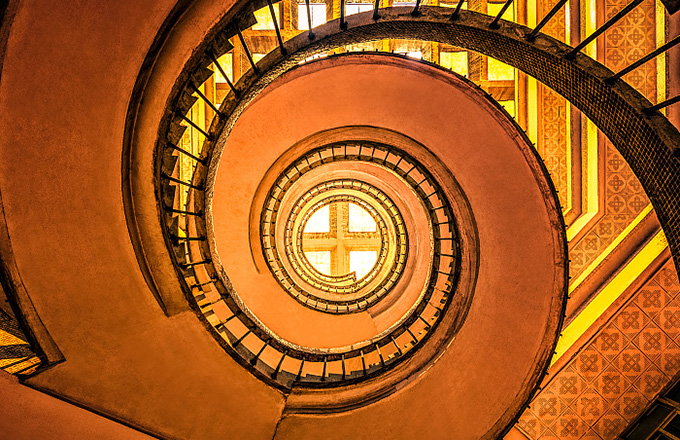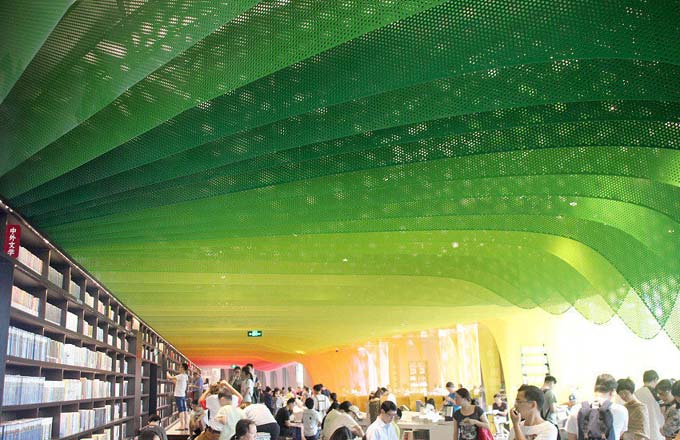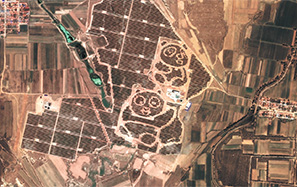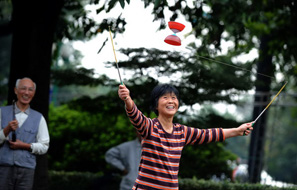Campers on Bund leave trash behind
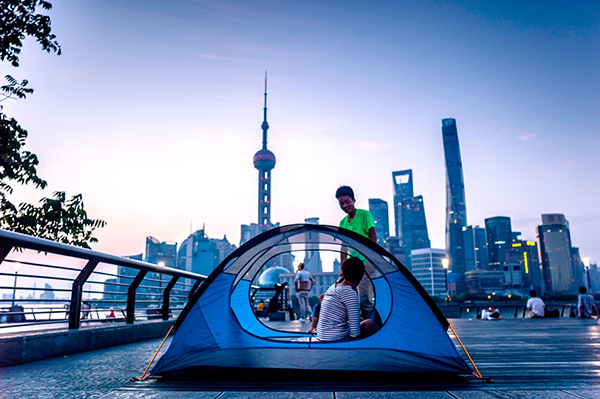 |
|
Security patrols have been stepped up along Shanghai's scenic Bund area to stop people from camping there, as tourists and residents seek cooler places to escape the ongoing heat wave.[Ren Guoqiang/For China Daily] |
Shanghai steps up patrols to keep visitors at scenic spot within rules
Security patrols have been stepped up along Shanghai's scenic Bund area to stop people from camping there, as tourists and residents seek cooler places to escape the ongoing heat wave.
Trouble is, the campers generate a lot of trash.
The city's meteorological office has issued 15 orange alerts and three red alerts about high temperatures in recent weeks. The extreme heat has resulted in at least four deaths and countless reports of heatstroke and other illnesses.
To cope, many people-especially those without air conditioning and guests in budget accommodations-h(huán)ave set up camp on the Bund, a waterfront area that stretches 1.5 kilometers along the Huangpu River.
The area has been a symbol of Shanghai for 149 years, and the sight of people sleeping on the ground with mats and bedsheets has angered some residents.
"Camping on the Bund is uncivilized, especially when some men go shirtless and sleep outside," said Qian Panpan, a photographer who takes pictures of visitors in the area, on Wednesday.
Under the city's rules, certain activities on the Bund are prohibited-lying down, sleeping, building things or piling up objects that hamper sightseeing.
"Many of the napping citizens or visitors don't know the regulations," said a man who said he was affiliated with the scenic area management committee. He did not give his name. "After we intensified our message, most people understood and agreed not to sleep on the Bund."
He said the police, security guards and urban patrol officers have increased patrols to remind people of the rules. Loudspeakers also blast out information for visitors. The authorities will not remove people by force, he added.
The nappers and campers have increased the workload of sanitation workers, he said.
Ji Jinbiao, a sanitation worker who works from 5 am to 2 pm every day at a Bund section near a statue of Chen Yi, Shanghai's first mayor after the founding of the People's Republic of China, said the quantity of trash has increased substantially recently and comes mostly from campers. The rubbish includes beverage containers, plastic bags and a variety of other household refuse, Ji said.
"Many visitors don't want to leave at night because the environment is very comfortable. They have a right to do it, and the only thing I can do is to clean up after they have gone," Ji said. "It is tough to clean up, actually."
He Qi contributed to this story.









